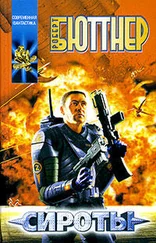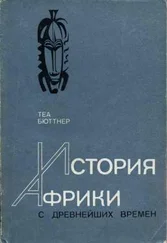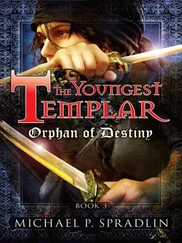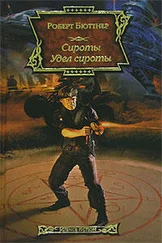Роберт Бюттнер - Orphan's Journey
Здесь есть возможность читать онлайн «Роберт Бюттнер - Orphan's Journey» весь текст электронной книги совершенно бесплатно (целиком полную версию без сокращений). В некоторых случаях можно слушать аудио, скачать через торрент в формате fb2 и присутствует краткое содержание. Жанр: Боевая фантастика, на английском языке. Описание произведения, (предисловие) а так же отзывы посетителей доступны на портале библиотеки ЛибКат.
- Название:Orphan's Journey
- Автор:
- Жанр:
- Год:неизвестен
- ISBN:нет данных
- Рейтинг книги:3 / 5. Голосов: 1
-
Избранное:Добавить в избранное
- Отзывы:
-
Ваша оценка:
- 60
- 1
- 2
- 3
- 4
- 5
Orphan's Journey: краткое содержание, описание и аннотация
Предлагаем к чтению аннотацию, описание, краткое содержание или предисловие (зависит от того, что написал сам автор книги «Orphan's Journey»). Если вы не нашли необходимую информацию о книге — напишите в комментариях, мы постараемся отыскать её.
Orphan's Journey — читать онлайн бесплатно полную книгу (весь текст) целиком
Ниже представлен текст книги, разбитый по страницам. Система сохранения места последней прочитанной страницы, позволяет с удобством читать онлайн бесплатно книгу «Orphan's Journey», без необходимости каждый раз заново искать на чём Вы остановились. Поставьте закладку, и сможете в любой момент перейти на страницу, на которой закончили чтение.
Интервал:
Закладка:
“New planet, new reality. Just be glad reality didn’t bite your ass.” I mag’d my view of the landing grounds ahead of us. Boats, troops by the tens of thousands, cavalry mounts, cannon, and supply wagons jumbled on the beaches. “Yet.”
SIXTY-THREE
AN HOUR LATER, I planted my feet in the sand of our expanding beachhead, and a handler brought up the dapple duckbill I would ride. As I grasped its reins, Casus thundered toward me on his white stallion, cape flying, and reined up.
I squinted up at him, and asked, “You reform your Divisions yet?”
He shook his head, pointing toward the dunes that bordered the beach. “Each Troop dashes inland as soon as its mounts recover from the janga.”
I sighed. “You have no command and control of your units?”
Casus stiffened. “We discussed this. We agreed!”
I had been terrified that our troops and equipment would pile up in a restricted beachhead, where the Slugs could cut them to bits with heavy fire. The “miracle” of Dunkirk, and of the British and French that the German army had surrounded on its beaches, was that the Allies won the war in spite of it. Dispersal had been my obsession, if we got ashore.
“I know. You’re right.” But I hung my head, and sighed again. “Keep pressing, but try to organize things on the fly.”
I assigned Casus to command the dash across the three hundred open miles, from the beaches to the mountains, that lay between us and the Troll, precisely because he had more speed than judgment.
He would press his soldiers mercilessly forward, wringing out their last sweat drops, because speed could win this war. Casus wouldn’t press because he was a bastard, though many of his soldiers surely would think he was. Caring about soldiers didn’t mean indulging them. A commander should always prefer live soldiers’ hatred over the affection of mothers who tell him their dead sons loved him.
A century before, Eisenhower trusted an ivory-handled-pistol-toting, GI-slapping public-relations disaster to boot the Nazis across France. Patton routed the Germans so magnificently that his armies outran their gasoline trucks.
I asked Casus, “Do you even know where your point units are? Whether they need supplies? Do they know whether our overhead imagery shows Slugs ahead of them? Or friendlies on their flanks?”
Casus shrugged. “My men are like their mounts. They smell the way home, and it’s forward.”
Command is choosing the right horse for the right course, then letting it run. But with a light hand still on the reins. Casus was the right horse for this course, but…
I swung up onto my duckbill. “Change of plan. My headquarters will move with yours for a couple days.”
A couple days turned out to be four weeks. The weather front from the north slammed us one morning later, then sat for days. Snow turned to rain, rain made mud, and Casus’s great dash forward stalled. Worse, the Slugs figured out where our main thrust was, and shifted their mobile reserve south to block us.
Tassini Scout units made first contact with overwhelming Slug forces at night, in a driving rain. Light-armored and inexperienced, the Scouts got mauled, and fell back through Casus’s cavalry units in disarray.
When first contact came, most kindergartens would have had better command and control than we did.
Marini infantry hurled into the breach finally stabilized the front, thanks to Gustus’s assault rifles, a few Company-level commanders’ tactical brilliance, and, as a Marini infantry sergeant reminded me, “A few bayonets wif’ guts behind ’em!”
The Slugs, who did always seem to go to school on human tactics, settled in to a mobile defense, blocking our front, jabbing, then defending every terrain obstacle until we flanked them. Then the Slugs gave ground, retreating behind the next obstacle. I felt as frustrated as Sherman marching south toward Atlanta.
Unlike the Confederates who delayed Sherman, time was on the Pseudocephalopod’s side. The Slug army grew by fifty thousand warriors every week. Our army just grew weaker every day, as our supply lines stretched and frayed.
The wobbleheads and duckbills ate whatever they found growing in front of them, which actually eased our logistic headache compared to, say, a diesel-powered Panzer army. Gustus devised a system of prepackaged cargo loads identified by manifests that cut supply wagon turnaround time in half.
Nonetheless, Gustus’s wagoners rumbled forward twenty-four-point-two hours every day, through mud and sleet. The wagoners’ round trips lengthened two miles for every mile our point units advanced. The resultant exhaustion and haste meant point units sometimes tore tarps off prepackaged wagons and found saddles when they were short of bread, and bread when they needed cartridges.
The Slugs weren’t winning, but they didn’t have to win. They just had to give us time to lose.
Fifty-four days after we hit the beaches, Casus, Howard, Ord, Bassin, and I stood among field commanders, studying the holo gen map view in a tent that was still three hundred miles from our objective.
Casus stabbed the map with his finger. “The Scouts will position themselves here, along the riverbank.” He glanced up at the Tassini Scout Commander. “Make a big show, as though you were an army.”
The Tassini nodded. “Many campfires. Much patrolling.”
Casus turned to the Marini Colonel of Charioteers. “Position your chariots and my cavalry here, in the woodline of these hills along the river, downstream from the Scouts. The morning fog will hide you even if the trees don’t. The Slugs will believe our Scouts are our entire army. So they will advance across your front, along the river, toward the Scouts.” Casus slid his finger upstream, in the direction of his Scout decoys.
Bassin nodded and smiled. “Ah! When the Slugs are strung out along the riverbank, the Chariots and cavalry will charge downhill. They will crush the Slugs against the river, like a hammer against an anvil.”
Casus nodded.
I smiled. War waged without flying machines hadn’t changed much over the centuries. Casus never got within light years of the Command and General Staff College at Ft. Leavenworth, but he had just diagramed the tactics Hannibal used to annihilate the Romans against the shores of Lake Trasemine in 217 B.C.
The Pseudocephalopod was as logical as the Romans, but more naive. I suppose if Howard was right, and the Pseudocephalopod was just a single being, it would never understand that the other guy might try to fool it.
Bassin said, “Then my sappers will push pontoon bridges across the river immediately.”
“And my men will put them to good use,” Casus said.
The next morning, I hid in the mist that wrapped the pines upslope of Casus’s planned killing ground. Arrayed to my left and right were so many cavalry and Charioteers that the nervous scuffing of heavy claws made a constant buzz.
This would be the first time many Tassini and Casuni units that had been fragmented on the landing grounds rejoined. Two hundred thousand of us, two hundred thousand Slugs. It was our chance to break the stalemate of indecisive probes and Slug retreats that had tilted the campaign against us. It was also our chance to lose everything.
Boom-boom-boom.
I heard the Slugs, though I couldn’t see them, and they couldn’t see us. I flicked my visor display and in front of me I saw through Jeeb’s passive infrared optics the marching Slugs below him, their Legion stretched out alongside the river in a thinned black line.
A bugle echoed, and the cavalry buzz became a rumble. Upstream, the Scouts charged the Slug column’s head, and collapsed it back into the Slug main body. Downstream, Casus’s cavalry swung in behind the Slug column’s rear, and drove it forward into the Slug main body.
Читать дальшеИнтервал:
Закладка:
Похожие книги на «Orphan's Journey»
Представляем Вашему вниманию похожие книги на «Orphan's Journey» списком для выбора. Мы отобрали схожую по названию и смыслу литературу в надежде предоставить читателям больше вариантов отыскать новые, интересные, ещё непрочитанные произведения.
Обсуждение, отзывы о книге «Orphan's Journey» и просто собственные мнения читателей. Оставьте ваши комментарии, напишите, что Вы думаете о произведении, его смысле или главных героях. Укажите что конкретно понравилось, а что нет, и почему Вы так считаете.








![Дэн Бюттнер - Где живет счастье [Правила жизни самых счастливых людей планеты] [litres]](/books/395574/den-byuttner-gde-zhivet-schaste-pravila-zhizni-samyh-thumb.webp)


